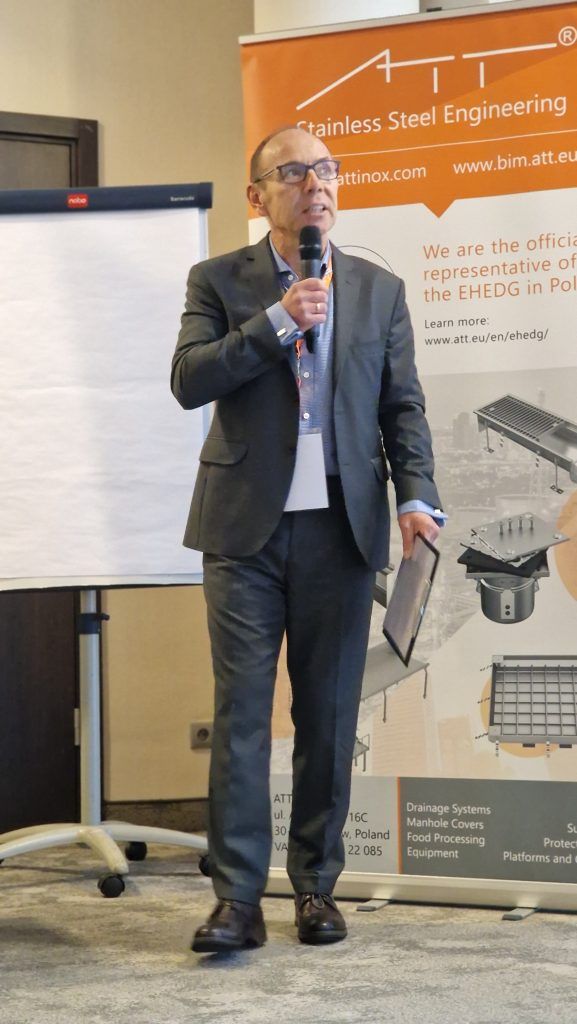
Interview within EHEDG Yearbook.
Jędrzej Gajda, Sales Director in Poland

Jędrzej Gajda, Sales Director in Poland
Could you introduce yourself and your organisation?
My name is Jędrzej Gajda. I’m currently the Sales Director for Poland at ATT Inox, a company that I
joined fifteen years ago. ATT Inox provides specialised products and customised stainless steel constructions. Apart from the domestic market, it implements projects in over 50 countries across the world.
How would you describe the Polish market in regards to hygienic design? What are the main challenges and opportunities?
Following the systemic transformation in the early 1990s, the Polish food industry found itself inad-
equately equipped to meet the demands of the newly emerging and open market. The relatively small number of food processing plants at that time, when contrasted with the rising demand in
various branches of food processing (fruit and vegetables, brewery, dairy and so on), created attractive investment prospects that led to the rapid development of the sector. This inclusmall, locally financed factories and huge projects carried out by powerful international corporations.
Three decades later, the Polish food processing market has evolved into a cornerstone of the domestic economy. Polish food is known for its superior quality and use of natural ingredients.
This rise to prominence was accompanied by a growing awareness of hygiene issues in the production process. Polish producers swiftly adapted and learned from the experiences of their international counterparts. At the same time, faculties specialising in food production technology at Polish universities, in collaboration with chemistry and microbiology departments, cooperated closely and fruitfully with business entities, striving to
improve food processing hygiene standards.
Today, hygiene standards in the majority of food plants in the country appear to be satisfactory,
particularly when compared to similar facilities in the Central and Eastern European (CEE) region.
Oversight of our domestic food production is diligently maintained by authorised institutions and
internal microbiological laboratories. Hygiene-oriented design and a constant increase in awareness among designers and producers alike is, of course, a process. There is still a great deal of room for improvement in the industry. Companies such as Diversey, Mondelez and ATT Inox actively participate in efforts to refine the hygienic design process, which was the objective of the EHEDG Conference which we held in November in Krakow.
What is your strategy to develop the region?
Our strategy involves convincing those responsible for food production processes of the benefits
of collaborating and exchanging experiences, by using dedicated platforms and channels, such as
seminars and conferences. It is necessary to familiarise production supervisors with publications
dealing with hygiene guidelines. It is equally important to point out the importance of machine
certification and the necessity to constantly update one’s knowledge of this subject.
During our sales visits, as an EHEDG member, we promote awareness of the hygiene issues associated with operating, introducing and certifying food processing machinery.
For 2024 we are aiming to develop webinars and media publications on the theme of hygienic design, as well as strengthening the relationship with the academic world by organising a seminar at one of the universities in Poland offering a curriculum in Food Technology. We also plan to hold another EHEDG Conference to encourage cooperation among members, and to spread the message among partners and customers about
such events.
More about ehedg with ATT: Here.


